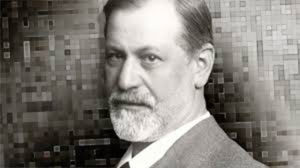Les flottements identitaires dans l’informe de la cure
Résumé
Dans les cliniques contemporaines de l’informe, qui gagnent à ce que soit repris dans le settinganalytique le vécu corporopsychique primitif, se fait sentir la nécessité d’aménager le dispositif psychanalytique classique. Il s’agit d’une part de mobiliser le processus précisément au niveau ultra-régressif qu’il appelle dans ces pathologies de l’excitation, et d’autre part d’encadrer fermement la régression par la butée perceptive.
Seront proposés deux fragments de travail clinique avec des patients aux lourdes fragilités narcissiques-identitaires mais sans psychose organisée, pour lesquels une psychothérapie sensoripsychique d’orientation psychanalytique a été engagée. Inspirée du dialogue sensorimoteur et tonico-émotionnel de J. de Ajuriaguerra avec les enfants, et du travail d’énaction de S. Lebovici avec les bébés, cette approche facilite avec les adultes les mouvements de liaison psychocorporelle.
C’est une médiation qui repose sur l’attention conjointe & soutenue aux infimes états du corps du patient en séance, et sur leur mise en forme figurative dans le travail associatif de co-pensée. Elle s’appuie sur l’élaboration par l’analyste des co-sentis qui traversent son contre transfert sensoriel, ce dernier servant d’incubateur au travail de transformation psychique qui précède la traduction interprétative faite aux patients.
Samenvatting
De aktuele kliniek van het ongevormde wordt bevorderd door rekening te houden met de primitieve lichaamlijke en psychische belevenissen wat meebrengt dat de klassieke psychoanalytische setting aangepast moet worden. Enerzijds moet men het proces aanwakkeren precies tot het ultraregressieve niveau van de opwinding dat in deze ziekten bestaat, en anderzijds stevig het regressieve door het perceptuele afbakelen.
Vervolgens komen twee voorbeelden van het klinisch werk met patienten die zwaar narcitische en identiteits zwakheden vertonen, maar zonder georganiseerde psychose. Het betreft psycho-sensoriele psychotherapiën afgeleid van het werk van J. de Ajuriaguerra met kinderen berustend op de sensori-motorische en tonisch-emotionele dialoog en ook op het welbekende “enacion” van S.Lebovici in zijn werk met babies. Deze manier van werken met volwassenen bevordert de psycho-lichaamlijke bindingbewegingen. Dit werk vraagt een wisselwerkende en onophoudende aandacht voor de minste lichaamlijke veranderingen.van de patient, voor zijn figuurlijke vormgevingen in het associatieve werk van het “samendenken”..Dit werk steunt eveneens op de opbouw, door de analyst, van zijn zintuigelijke medevoeling in zijn overdracht die de rol speelt van een incubator voor het bedenken van de psychische verandering die via de interpretatie aan de patient wordt voorgesteld.
IDENTITY WAVERING IN THE FORMLESSNESS OF THE ANALYTICAL CURE
In the contemporary clinics of the formless, it is perceived a need to adapt the classical psychoanalytical set up, as it is beneficial to incorporate the primitive body-psychic experience in the analytical setting. On one hand it is about mobilizing the process, precisely at the ultra-regressive level called by in these pathologies of the excitation. On the other hand it is about firmly supervising regression through perception scaffolding.br/>Two excerpts of clinical work shall be presented. These patients present heavy narcissistic-identitary fragility, but nor an organized psychosis, therefore a sensory-psychic psychotherapy of psychoanalytical orientation has been started. Inspired by the sensory-motor and tonic-emotional dialogue of J. de Ajuriaguerra with children, and by the enactingwork of S. Lebovici with babies, this approach enables body-psychic bonding movements with adults.
This is a mediation based on the joint and sustained attention to the minimal body states of the patient during the session, and the figurative shaping in the associative work of co-thinking. It is based on the elaboration by the analyst of the co-feelings crossing its sensorial transference. The latter acts as incubator of the work of psychic transformation preceding the interpretative translation provided to the patients.





